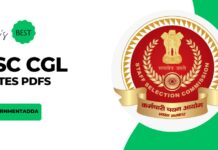Ayushman Bharat, a flagship scheme of Government of India was launched as recommended by the National Health Policy 2017, to achieve the vision of Universal Health Coverage (UHC). This initiative has been designed on the lines as to meet SDG and its underlining commitment, which is “leave no one behind”.
Ayushman Bharat is an attempt to move from sectoral and segmented approach of health service delivery to a comprehensive need-based health care service. Ayushman Bharat aims to undertake path breaking interventions to holistically address health (covering prevention, promotion and ambulatory care), at primary, secondary and tertiary level. Ayushman Bharat adopts a continuum of care approach, comprising of two inter-related components, which are –
- Health and Wellness Centres (HWCs)
- Pradhan Mantri Jan Arogya Yojana (PM-JAY)
In February 2018, the Government of India announced the creation of 1,50,000 Health and Wellness Centres (HWCs) by transforming existing Sub Centres and Primary Health Centres. These centres would deliver Comprehensive Primary Health Care (CPHC) bringing healthcare closer to the homes of people covering both maternal and child health services and non-communicable diseases, including free essential drugs and diagnostic services.
Health and Wellness Centers, are envisaged to deliver an expanded range of services to address the primary health care needs of the entire population in their area, expanding access, universality and equity close to the community. The emphasis of health promotion and prevention is designed to bring focus on keeping people healthy by engaging and empowering individuals and communities to choose healthy behaviours and make changes that reduce the risk of developing chronic diseases and morbidities.
The second component under Ayushman Bharat is PM-JAY, which aims at providing health insurance cover of Rs. 5 lakhs per family per year for secondary and tertiary care hospitalization to over 10.74 crores poor and vulnerable families (approximately 50 crore beneficiaries). There is no cap on the family size under the scheme. This scheme was earlier known as National Health Protection Scheme (NHPS) before it was rechristened to PM-JAY. This scheme was launched on 23rd September 2018 by the Hon’ble Prime Minister Shri Narendra Modi in Ranchi, Jharkhand.
PM-JAY has been rolled out for the bottom 40% of poor and vulnerable population. The households included are based on the deprivation and occupational criteria of Socio-Economic Caste Census 2011 (SECC 2011) for rural and urban areas respectively. The scheme subsumed then existing Rashtriya Swasthya Bima Yojana (RSBY), launched in 2008. Therefore, the coverage mentioned under PM-JAY also includes families that were covered in RSBY but were not present in the SECC 2011 database. PM-JAY is completely funded by the Government, and cost of implementation is shared between Central and State Governments.

Key Features of PM-JAY
- PM-JAY is the world’s largest health insurance/ assurance scheme fully financed by the government.
- PM-JAY provides cover of Rs. 5 lakhs per family per year, for secondary and tertiary care hospitalization across public and private empaneled hospitals in India.
- Over 10.74 crore poor and vulnerable entitled families (approximately 50 crore beneficiaries) are eligible for these benefits.
- PM-JAY provides cashless access to health care services for the beneficiary at the point of service, that is, the hospital.
- PM-JAY will help reduce catastrophic expenditure for hospitalizations, which pushes 6 crore people into poverty each year, and will help mitigate the financial risk arising out of catastrophic health episodes.
- No restrictions on family size, age or gender.
- All pre–existing conditions are covered from day one.
- Covers up to 3 days of pre-hospitalization and 15 days post-hospitalization expenses such as diagnostics and medicines
- Benefits of the scheme are portable across the country i.e. a beneficiary can visit any empanelled public or private hospital for cashless treatment.
- Services include approximately 1,393 procedures covering all the costs related to treatment, including but not limited to drugs, supplies, diagnostic services, physician’s fees, room charges, surgeon charges, OT and ICU charges etc.
- Public hospitals are reimbursed for the healthcare services at par with the private hospitals.
Benefit Cover Under PM-JAY
Benefit cover under various Government-funded health insurance schemes in India have always been based on an upper ceiling limit and varied between an annual cover of INR30,000 to INR3,00,000 per family across various States, creating a fragmented system. PM-JAY provides cashless cover of up to INR5,00,000 to each eligible family per annum for listed secondary and tertiary care conditions. The cover under the scheme includes all the expenses incurred for the following components of the treatment.
- Medical examination, treatment, and consultation
- Pre-hospitalization
- Medicine and medical consumables
- Non-intensive and intensive care services
- Diagnostic and laboratory investigations
- Medical implant services (where necessary)
- Accommodation benefits
- Food services
- Complications arising during treatment
- Post-hospitalization follow-up care up to 15 days
The benefits of INR 5,00,000 are on a family floater basis which means that it can be used by one or all members of the family. The RSBY had a family cap of five members. However, based on learning from those experiences, PM-JAY was designed in such a way that there is no cap on family size and age of members. In addition, pre-existing diseases are covered from the very first day. This means that any eligible person suffering from any medical condition before being covered by PM-JAY will now be able to get treatment for those medical conditions under the scheme.














